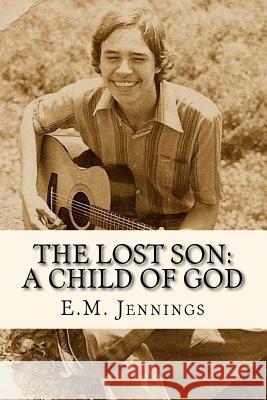The Lost Son: A Child of God » książka
The Lost Son: A Child of God
ISBN-13: 9781533405241 / Angielski / Miękka / 2016 / 414 str.
The reader chose this book, I suspect, because central to the story is the controversial Christian cult, The Children of God or what eventually became known as the "Family." This is not an expose of a rogue, narcissistic preacher or the accusation of crimes against the top leadership during the late 1970s but rather, the perspective of a teen who was first introduced to this group in 1972, when I was thirteen years of age. I was actively recruited at age sixteen; I left home when I was seventeen; and I was on the streets of Europe three weeks later. I believed fervently, as I think many did, that we were the reawakening of the first-century church and that our leader, the man we called Moses David, or "Mo" was God's anointed end-time prophet. Even more, I was convinced that our disciplined lives and the activities of scripture memorizing, street witnessing, and reaching out to the world were essential. First, because they were and remain the pillars of Christian teaching that brought and still brings the good news of salvation to a lost world; second, because time was running short, and we knew that we were living in the end-times; and, finally, because God demanded that His followers seek Him diligently and live by faith, through actions rather than idle promises. The first years of the group's existence were full of controversy. David Berg certainly was anything but conventional. This was the 1970s. Bizarre events covered the front pages of newspapers and filled the airwaves of television and radio. Young people distrusted the establishment. The Kent State riots and massacre, the Vietnam War, and Richard Nixon's resignation from the presidency of the United States after the Watergate scandal drowned out otherwise amazing stories, such as the continued manned missions to the moon or the birth of the computer revolution. The first ten years of the group, from 1968 to 1978, were the era of "The Children of God," a time before Berg fully enacted his pivotal changes in doctrine and the group's practices. This is the setting of the story, and the reader will come to understand that Berg, who was once an ordained minister in the well-reputed Christian Missionary Alliance, a third-generation preacher, the son of a tent revivalist, and a part of the early years of Christian radio and television, found a rare opportunity. His career had been going nowhere. He had lost his church to a scandal, and he held established Christianity in contempt. He accused the church of doing virtually nothing but assembling on Sunday. His message resonated with the disenfranchised youth who were gathering in coastal California, and he finally found his audience. Soon the group the Children of God was born, grew astoundingly, and emerged onto the international arena. Living as a Child of God was anything but usual and Mo's teachings were controversial, especially his belief that America was soon to face God's wrath and judgment and for his scathing views on the establishment. The foundational doctrine, surprisingly, in many ways was rooted in fundamental Christian beliefs (salvation by grace, resurrection, the great commission, baptism of the Holy Spirit). We read and memorized from the King James Bible, however, the seeds of deceit were already planted. Mo introduced us slowly to his ideas regarding sex and its use in winning converts to the group . He wrote frequently about it but I never saw these practices in use while I was in Europe in 1975 and1976. I was not alone falling victim to his calculated methods, however, deep inside my struggle intensified as the tempest was brewing in our midst. The reader might ask, "How could a "normal" person blindly follow such a leader or sanely agree to join a cult?" That is the question I hope to answer in telling my story."
Zawartość książki może nie spełniać oczekiwań – reklamacje nie obejmują treści, która mogła nie być redakcyjnie ani merytorycznie opracowana.











